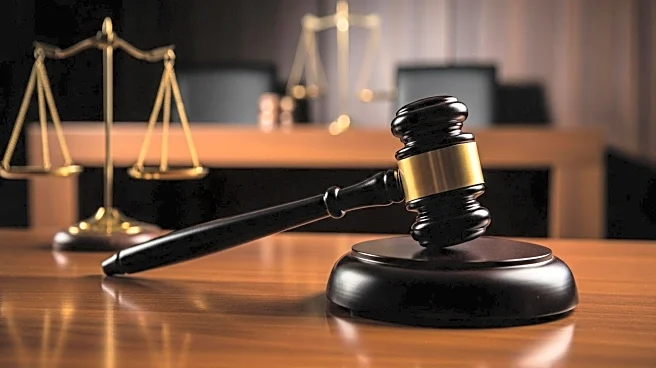What is the story about?
What's Happening?
Ryan Routh, accused of attempting to assassinate President Trump at a Florida golf course, has rested his case without testifying in his own defense. Routh, who is representing himself, called three witnesses, including a family member and a former Marine sniper. The sniper test-fired the SKS Soviet-made rifle found at the scene, which allegedly jammed after firing one shot. Routh faces multiple charges, including attempted assassination of a major presidential candidate and assaulting a federal officer. Prosecutors presented extensive evidence, including call logs, text messages, bank records, and video surveillance, to demonstrate Routh's alleged preparations for the assassination attempt. The trial has included testimony from 38 witnesses, with the prosecution resting its case after nearly two weeks of proceedings.
Why It's Important?
The trial of Ryan Routh is significant as it involves an alleged assassination attempt on President Trump, highlighting concerns about political violence and security for public figures. The case underscores the challenges of self-representation in complex legal proceedings, as Routh navigates the trial without formal legal education or resources. The extensive evidence presented by prosecutors, including electronic and physical surveillance, reflects the capabilities of law enforcement in tracking and preventing potential threats. The outcome of this trial could have implications for how similar cases are handled in the future, particularly regarding the security measures for high-profile individuals and the legal processes for defendants representing themselves.
What's Next?
As the trial concludes, the jury will deliberate on the charges against Ryan Routh, which could result in significant legal consequences if he is found guilty. The case may prompt discussions among political leaders and security experts about enhancing protective measures for public figures. Additionally, the trial's outcome could influence public discourse on political violence and the legal system's ability to address such threats. Stakeholders, including law enforcement agencies and political organizations, may evaluate the implications of this case for future security protocols and legal strategies.
Beyond the Headlines
The trial raises ethical and legal questions about self-representation in serious criminal cases, particularly when the defendant lacks legal expertise. It also highlights the cultural dimensions of political violence, as the alleged assassination attempt reflects broader societal tensions. The case may lead to discussions about the role of rhetoric and media in influencing individuals to commit acts of violence against political figures. Long-term shifts could include changes in legal practices regarding self-representation and increased scrutiny of security measures for public figures.

















